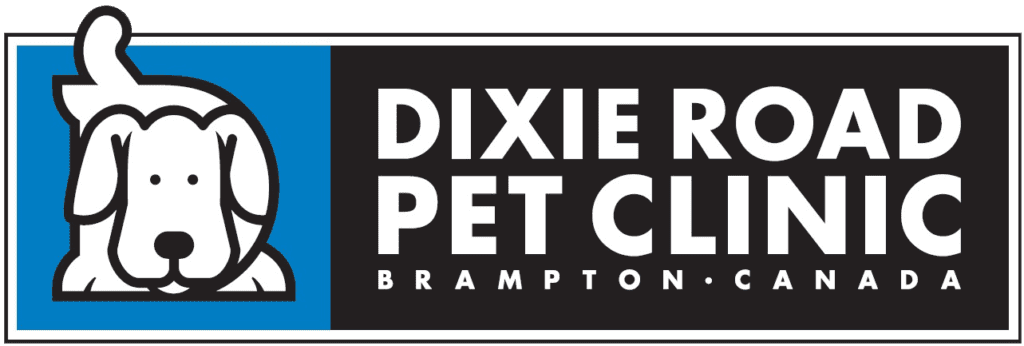Your Dog’s Golden Years

Is your canine pal aged six or older? If so, Fido may be a senior. Dogs don’t all age at the same rate: some enter their golden years around age six, while others aren’t considered seniors until they are nine or even older. However, no matter what type of pup you have, your furry friend will need some extra TLC as he ages. Here, a local Brampton, ON vet lists some great senior dog care tips.
Beds
Make sure Fido has a comfy bed to snuggle up in at night. Orthopedic beds are great for older dogs. You can also use a child’s mattress, or add a mattress topper to a regular doggy bed.
Veterinary Care
Fido will need to come in more often as he ages, so his health can be closely monitored. Follow your vet’s recommended appointment schedule. At home, watch for signs of sickness. Contact your vet immediately if you notice anything amiss.
Exercise
While it’s natural for dogs to slow down as they age, don’t let your pup become a complete couch potato. Fido will still need regular activity, as otherwise his muscles may atrophy. Your canine companion’s exact needs will depend on his age, weight, breed, and health. However, most pooches need a daily walk, at the very least. Ask your vet for more information.
Food
Proper nutrition will go a long way towards keeping Fido happy and healthy. Offer him a high-quality, premium brand of dog food.
Doggy Comforts
Small touches can make a big different in your pet’s comfort. Elevated dishes and pet ramps can both make life easier on your canine buddy. If you leave Fido home while you go to work, keep a TV and a light on for him, and leave your climate control running.
Grooming
Fido will be much more comfortable if he is clean, well-kept, and free of parasites. Be sure to keep up with your pup’s grooming requirements. Dental care and pawdicures are also important.
Tail Wags
Older dogs often get a very sweet demeanor that is truly wonderful. Your pooch will remain loving and loyal until the very end. Savor this special time with your pet. Spend time with Fido, and offer lots of treats and belly rubs to keep that tail wagging.
Our Advice on Your Dog’s Golden Years in 2024
When is a dog considered a senior?
A dog is generally considered a senior around the age of six or older, though the specific age can vary significantly among different breeds and sizes of dogs. Smaller breeds often enter their golden years later than larger breeds, with some not being considered seniors until they are nine or even older. It’s important to recognize the individual variability in aging among dogs to provide the appropriate care and adjustments needed for their senior years, focusing on their health, comfort, and quality of life.
Why is regular veterinary care more important for senior dogs?
Regular veterinary care becomes increasingly important for senior dogs due to their heightened vulnerability to health issues as they age. Older dogs may develop various age-related conditions such as arthritis, heart disease, kidney issues, and dental problems. Frequent check-ups allow for early detection and management of such conditions, enhancing the dog’s quality of life. Additionally, senior dogs may require adjustments in their diet, exercise regimen, and medication. Monitoring their health closely through regular veterinary visits ensures any necessary modifications to their care plan can be made promptly, supporting their well-being in their golden years.
What specific health conditions are senior dogs more prone to?
Senior dogs are more prone to a range of health conditions as they age, including arthritis, which affects mobility; heart disease, impacting cardiovascular health; kidney and liver diseases, which can alter metabolic processes and toxin removal; cancer, with varying impacts depending on type and location; dental problems, affecting eating and overall health; and obesity, which can exacerbate other health issues. Vision and hearing loss are also common. Regular veterinary check-ups are essential for early detection and management of these age-related conditions to maintain the health and quality of life of senior dogs.
What are the signs that your senior dog might be in pain?
Signs that a senior dog may be in pain include noticeable changes in behavior, such as increased irritability or aggression, decreased activity levels, reluctance to jump or climb stairs, and changes in eating habits. Physical signs include limping, difficulty standing after lying down, excessive licking of a particular area, and vocalizing when touched or moved. Changes in posture or gait, such as a hunched back, can also indicate discomfort. If you observe any of these symptoms in your senior dog, it’s important to consult with a veterinarian promptly for assessment and treatment. If you’re in Brampton, ON, our clinic is available to help assess and manage your dog’s pain effectively.
How should you approach preparing for the end of your senior dog’s life?
Preparing for the end of your senior dog’s life involves a compassionate, thoughtful approach, focusing on comfort and quality of life. Consult with your veterinarian to understand the medical aspects and consider palliative care options. Create a peaceful environment for your dog, maintaining routine as much as possible while accommodating for any mobility or health issues. Consider their nutrition and hydration needs, adapting as necessary. Emotional preparation is also important; cherish your time together, creating positive memories. Discussing end-of-life options, including euthanasia, ahead of time can help you make informed, compassionate decisions when the time comes.
Please call us, your Brampton, ON pet hospital, for all your dog’s veterinary care needs. We’re here to help!
